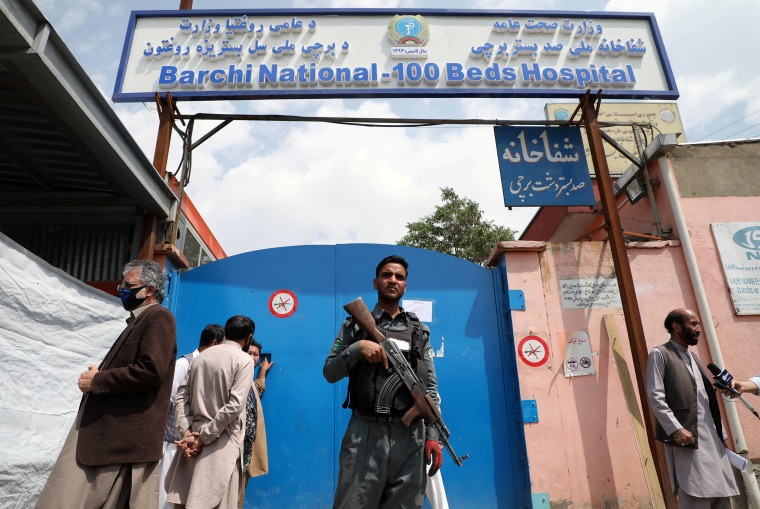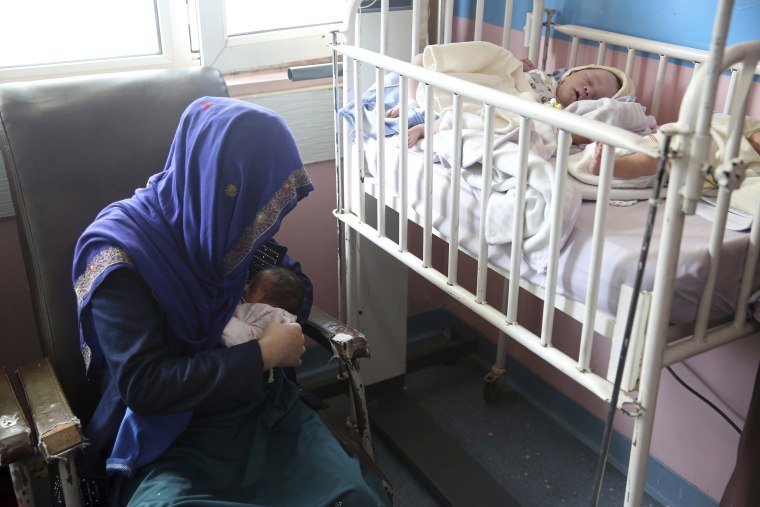They came to kill mothers.
That was the chilling assessment of a Doctors Without Borders representative in Afghanistan after gunmen stormed a maternity ward of a public hospital supported by the humanitarian organization in the west of the capital Kabul earlier this week.
“They went through the rooms in the maternity, shooting women in their beds. It was methodical. Walls sprayed with bullets, blood on the floors in the rooms, vehicles burnt out and windows shot through,” Frederic Bonnot, the organization’s head of programs in Afghanistan, said in a statement Thursday.

The attack on the Dasht-e-Barchi Hospital on Tuesday rocked Afghanistan, a country ravaged by four decades of war, that is no stranger to senseless loss of life.
The total death toll of the attack remains unclear, as does who is responsible for the attack.
Fifteen women and one man were killed, according to the Afghan Health Ministry. A spokesperson for the Interior Ministry said two infants were also among the dead.
Figures shared by Doctors Without Borders, also known by its French name Médecins Sans Frontières, suggest that 24 people died and at least 20 more were injured, a majority of them patients.
Afghan Vice President Amrullah Saleh has blamed the Taliban for the attack, although the militants have repeatedly denied that they were involved.
"Neither the Taliban hands nor their stained consciousness can be washed of the blood of women, babies and other innocent in the latest senseless carnage," Saleh tweeted Friday.
However, America's special representative for Afghanistan reconciliation, Zalmay Khalilzad, said Thursday that the U.S. government had assessed that the Islamic State militant group was responsible for the attack on the maternity ward, as well as a separate assault at a funeral ceremony earlier this week.
He said the branch of ISIS that operates in Afghanistan and Pakistan opposes an agreement between the Afghan government and the Taliban, and seeks to encourage sectarian war as in Iraq and Syria.
The hospital is in a neighborhood that is home to many members of Afghanistan's Hazara community, a mostly Shiite Muslim minority that has been attacked by ISIS in the past. The Taliban has lately moved away from its fierce anti-Shiite rhetoric.
The Taliban also steadfastly deny they target civilians. However, according to the United Nations, the group was responsible for almost half of the more than 10,000 civilians who were either injured or killed in Afghanistan last year.
Khalilzad was instrumental in Washington's signing of a landmark deal with the Taliban in Qatar in February that aims to end America’s longest war. The agreement, which has seen America begin to draw down troops from the war-torn country, was meant to pave the way for the Taliban to enter into peace talks with Afghan government officials, representatives of the opposition and members of civil society.

However, progress has stalled in recent months as a planned exchange of thousands of prisoners between the Afghan government and the Taliban has broken down because the government, which was not party to the Doha pact, has declined to release the Taliban prisoners as quickly as was suggested in the U.S. deal.
Tension has also arisen over the identification of prisoners and over which Taliban prisoners should be released first, with the government opting for the sick and the elderly who are less likely to return to the battlefield.
Mudslinging and accusations of wrongdoing have been the norm for months in Afghanistan, but the attacks on the maternity hospital and a funeral ceremony in Nangarhar province Tuesday have made the prospect of peace feel even more remote.
Following the attacks, Afghan President Ashraf Ghani announced that he had asked Afghan security forces to switch from "defensive" to “offensive” mode and appeared to blame the Taliban for one of the attacks.
"Today at the government hospital in Kabul and in [the] funeral in Jalalabad, people witnessed Taliban and Daesh terror,” he said Tuesday, referring to ISIS by its Arabic acronym, without specifying which group he blamed for which attack.
ISIS later claimed responsibility for the Nangarhar attack, according to Flashpoint Intelligence, a global security firm. However, the firm said Friday they had yet to receive any claims of responsibility for the hospital attack.
The Taliban on Friday emphatically condemned the bloodshed saying attacks on clinics, funerals and public infrastructure have “no place in our policy.”
In response to being blamed for the hospital attack, the Taliban claimed responsibility Friday for a truck bomb attack Thursday outside a military compound in Paktia province in the east of the country. The attack killed five civilians and injured 24, according to the Afghan Defense Ministry.